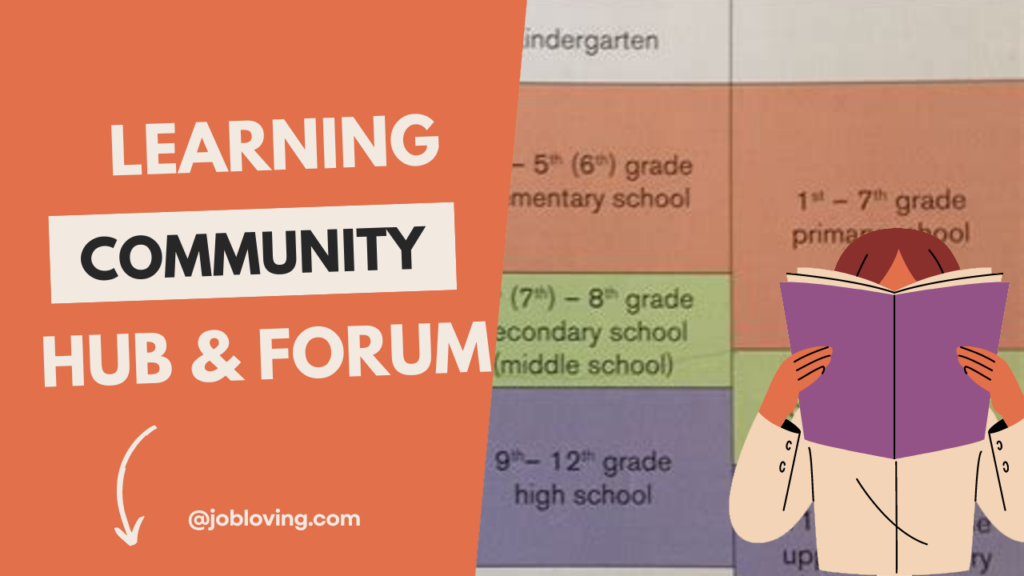Ever wondered what they’re calling those hormone-riddled teens roaming the hallways of high school? That’s right, high school students have their very own names based on their grade levels. Not just any names—it’s a classification that carries a sort of rite of passage vibe! Let’s peel back the curtain and discover the four stages of high school life!
Answer: Freshman, Sophomore, Junior, Senior
In high school, students are placed into four distinct categories based on their grade levels: 9th grade: Freshman, 10th grade: Sophomore, 11th grade: Junior, and 12th grade: Senior. These titles encapsulate not just the year of schooling but also a student’s journey from wide-eyed newcomer to seasoned senior ready to take on the world!
Let’s break it down a bit more:
- As Freshmen, students are typically 14-15 years old, navigating the maze of lockers, teen dramas, and awkward gym classes. It’s an age of discovery where everything feels overwhelming but exciting.
- In Sophomore year, things start to settle down for those brave 15-16 year-olds. They still have a lot to learn, but they’re better equipped to handle social hierarchies and examining what subjects they actually enjoy.
- The Junior year is often deemed the most challenging as these 16-17 year-olds start preparing for college entrance exams and looking at post-high school options. It’s like the training ground before the grand finale!
- Finally, we have the Seniors, the 17-18 year-olds who are at the peak of their high school experience. They’re on the cusp of graduation, celebrating milestones and reflecting on years gone by.
As you can see, each high school grade comes with its own unique experiences and challenges. Whether you’re a Freshman trying to blend in or a Senior planning your next steps, knowing these classifications can help you navigate the hustle and bustle more confidently.
Curious for more school-related insights or need a space to ask questions? Jump into the JobLoving community for all the resources and support you need!
Key takeaways about the 4 grades of high school
High School Structure and Grade Definitions
- High school consists of grades 9 through 12, encompassing ages 14 to 18 for students.
- Freshman, sophomore, junior, and senior are the four distinct names for high school grades.
- Students typically transition to high school after completing middle school, which ends at grade 8.
- High school grade levels are structured to support students’ academic and personal growth throughout their education.
- Each grade level serves distinct developmental purposes, shaping students’ readiness for post-secondary challenges.
- Understanding these grade levels helps students navigate high school and prepare for future opportunities effectively.
- Freshman year typically involves students aged 14-15 adjusting to high school environments and courses.
- Sophomore students, aged 15-16, begin to explore interests and contemplate future college and career paths.
- Junior year, for 16-17-year-olds, is rigorous with advanced courses and standardized test preparations for college.
- Seniors, aged 17-18, focus on completing education and applying to colleges or vocational schools post-graduation.
Academic Expectations and Curriculum
- Each high school grade level has specific academic expectations and subject focuses for students.
- High school education includes a mix of core subjects: English, mathematics, science, and social studies.
- Advanced classes in high school prepare students for college and career readiness after graduation.
- High school courses may include honors or advanced placement options for academically gifted students.
- Curriculum differences exist among high schools, affecting the subjects and teaching methods used.
- Vocational and technical training options are available in some high schools, preparing students for careers.
- Class placements in high school may vary based on student performance, motivation, and test scores.
- High school graduation rates can vary significantly across different states and demographic groups.
- Many high schools offer support systems for students struggling academically or socially during their education.
- The importance of high school education is emphasized as a foundation for lifelong learning and success.
Extracurricular Activities and Personal Development
- High school students often participate in extracurricular activities like clubs and sports alongside academics.
- Students may face challenges balancing academics with social and extracurricular commitments.
- Extracurricular activities during high school play a significant role in college admissions evaluations for students.
- High school experiences can shape personal development, friendships, and future career aspirations for students.
- Students often develop critical thinking and problem-solving skills during their high school education years.
- High school experiences vary significantly, influencing students’ academic trajectories and personal development over time.
Post-High School Opportunities and College Readiness
- Community colleges often accept high school graduates for further education, offering affordable tuition rates.
- College admissions often rely heavily on junior and senior year performance, impacting future academic prospects.
- The transition from middle to high school often involves increased independence and responsibility for students.
- Students can earn diplomas after completing required credits across all four high school grades.
- Students in high school may face challenges balancing academics with social and extracurricular commitments.

